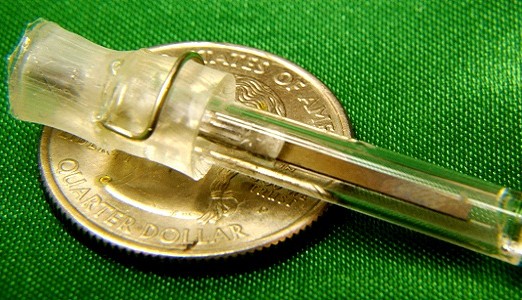Rap against incontinence
on

The driving bass rhythm of rap music can be harnessed to power a new type of miniature medical sensor designed to be implanted in the body. Such a device might ultimately help to treat people stricken with aneurisms or incontinence due to paralysis.
The heart of the new sensor, developed at Purdue University, is a vibrating cantilever, a thin beam attached at one end like a miniature diving board. Acoustic waves from music or plain tones in the range of 200 to 500 Hz pass through body tissue and cause the cantilever to vibrate, generating electricity that can be used to charge a capacitor. Simply playing tones in the right frequency range would be possible but annoying. The researchers therefore experimented with four types of music: rap, blues, jazz and rock.
The music reaches the correct frequency only at certain times, for example, when there is a strong bass component, which is often the case in rap. When the frequency falls outside of the proper range, the cantilever stops vibrating. The sensor can then take a pressure reading and transmit the data wirelessly to a receiver.


Discussion (0 comments)